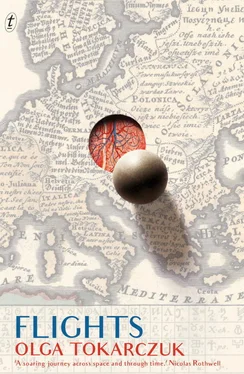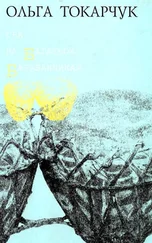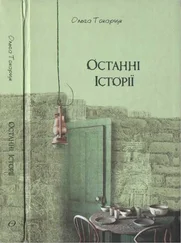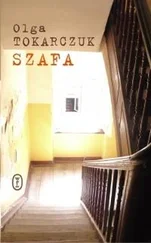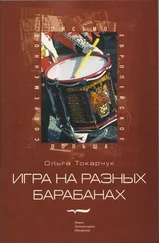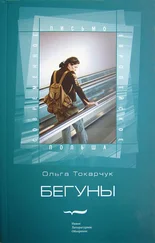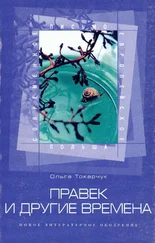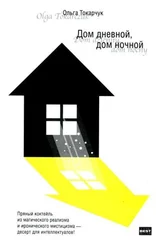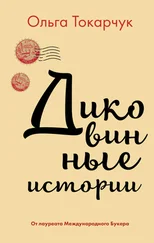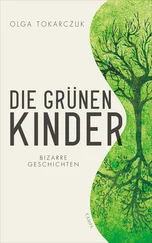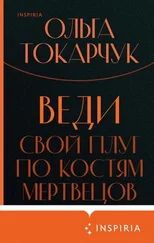So she’d already known at school that she wanted to become a biologist, which was why she had studied biology and chemistry with such zeal. In Russian she’d written notes filled with gossip that had been dutifully passed by her classmates beneath the benches to her best friends. In Polish she’d been bored to death, until in year six she had fallen in love with a kid her same age but with a different home room, a kid who had the same name as the author of these emails, and whose face she strove so hard now to call forth. He must have been the reason she’d learned so little about positivism and Young Poland.
Her daily commute is a pendular voyage along an elegantly curved arc, eight kilometres of coast, there and back, from home to work and vice versa. The sea is ever-present in this journey, and one could say without hesitation that hers is a maritime voyage.
At work, she’d stop thinking about his emails. She was herself again, and anyway there was no place for hazy recollections here. As soon as she’d pulled out of the driveway at home and merged onto the highway she was always kind of excited at all the things that awaited her in the lab and in her office. And then the familiar solidity of that low, glassy building would readjust her consciousness, and her brain began to work more efficiently, as focused as a well-oiled engine, reliable, the kind that always gets you to your destination.
She was taking part in a massive programme aimed at eliminating pests like weasels and opossums, which – imprudently introduced into the region by humans – now wreaked havoc among the endemic bird species, feeding mostly off their eggs.
She worked on a team that tested poisons on these small animals. The poison was injected into the eggs, which were then distributed as bait in special wooden cages throughout forests and in the bush; it had to be fast, humane, and also highly biodegradable, so that the fallen animals didn’t poison insect populations, as well. A crystal clear poison, completely safe for the world, aimed only at the pest, at one chosen organism type, self-neutralizing after completing its mission. The James Bond of ecology.
This was what she did. She created just this sort of substance, had been working on it for seven whole years.
Somehow he knew. He must have found it on the internet – everything’s on there somewhere. If you’re not on the internet, it’s almost as though you don’t exist at all. You have to have at least one little mention, even if it’s just in a list of school alumni. And it would have been easy for him to track her down since she never changed her name. So he must have just put her name into Google, and up came several pages: her articles, the courses she taught, and her environmental activism. At first she thought that that was what interested him. And so she innocently let herself be pulled into the exchange.
It is hard to sleep on this great, transcontinental airplane. Her ankles swell, and her feet go numb. She dozes off in short spurts, which disorients her even further in terms of time. Can the night really be so long? wonders the lost human body estranged from Earth, from its place, where the sun rises and sets, and the pineal gland, that hidden third eye, conscientiously registers its movement in the sky. Finally it starts to get light out, and the plane’s engines change their tone. From the tenor to which the ear had grown accustomed to lower registers, baritones and basses; finally, faster than she’d expected, the great machine makes its landing, deft and smooth. On the jet bridge as she heads into the airport she can feel how hot the air is here, squeezing in through the cracks, sticky, damp – the lungs rear up, trying to take it in. But fortunately she won’t have to deal with it. Her next flight leaves in almost six hours, and she plans to spend that time here in the airport, napping and nodding off, trying to get her bearings in time. Another twelve-hour flight awaits her next.
She thought often of the man who had unexpectedly sent her that email. And then more emails, so forming a correspondence brimming with hints and surmises. Such things aren’t written out, but to those with whom you once had an intimate physical relationship a certain kind of loyalty remains in effect, in the end – so she understood. Was that why he had come to her? It was obvious. Losing your virginity is a singular and irreversible event that can never be done over; by virtue of this it somehow becomes momentous, whether you want it to be or not, regardless of whatever ideology. She remembers exactly what it was like: the brief, piercing pain, an incision, a scarification – how astonishing that it had been effected by such a mild, blunt instrument.
She also recalls the beige-grey buildings around the university, the gloomy pharmacy that always kept the light on, in any weather, in all seasons, and the old brown jars with their contents painstakingly spelled out on the label. The little yellow packages of pills for headaches, six in each, held together with a rubber band. She recalls the pleasant ovoid shape of those telephones, moulded out of hard rubber, most often black or mahogany – they didn’t even have a rotary dial, just a little crank, and their sound was like a little tornado wound up deep within the cable tunnels in order to bring about the voice desired.
She’s surprised she can see it all so clearly – for the first time in her life. She must be starting to get old, because it seems like it’s in old age that you begin to hear from those little nooks in the brain that have the records of everything that ever happened. She’d never had time before to really think about those types of things, from days gone by; the past was like a smudged streak. Now the movie slows and reveals details – capacious is the human brain. Hers had preserved even her little brown purse, pre-war, which had originally belonged to her mother, with soft sides made out of rubber-lined material, with a beautiful metal clasp that looked like a jewel. On the inside it was smooth and cool to the touch; when you reached inside it seemed like a dead offshoot of time had got stuck there.
The next plane, the one to Europe, is even larger, with different stories. It flies well-rested, suntanned tourists. They try to stuff their eccentric souvenirs into the overhead bins – a high drum covered in an ethnic pattern, a straw hat, a wooden Buddha. She sits crammed in between two women, in the very centre of the row, in a very uncomfortable place. She rests her head back on her seat, but she knows she won’t be able to sleep.
They came to do their studies from the same small town, he specializing in philosophy, she biology. They met up every day after classes, both a little frightened of the big city, a little lost. Sometimes they’d smuggle one another into their different dorms; once – now she remembers – he even climbed up to the second floor of hers along the drainpipe. She remembers her room number, too: 321. But university and the city only lasted for a year. She managed to get through end of year exams, and then they left. Her father sold his clinic for a song, lock, stock, and barrel: that dentist’s chair, the metal and glass cabinets, the autoclaves and instruments. By the by, now she wonders, where did all of that end up? In the rubbish heap? Was the off-white paint still peeling off it? Her mother sold the furniture. There was no sadness, no despair – just an unease about getting rid of everything, because after all it meant starting over. They’d both been younger than she was now (though then they’d seemed absolutely elderly to her), and they’d been ready to embark on a new adventure, anywhere’d be fine: Sweden, Australia, maybe Madagascar – anywhere, just as far as they could get away from their rotten, claustrophobic northern life in that absurd, unfriendly communist country of the late sixties. Her father said it was not a country suited to human beings, though then he spent the rest of his life pining away for it. And she wanted to go, she really wanted it, like any nineteen-year-old – wanted to set out into the world.
Читать дальше
